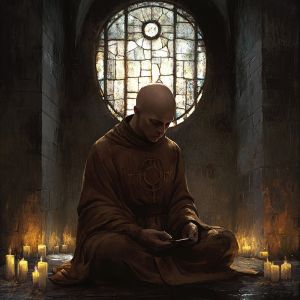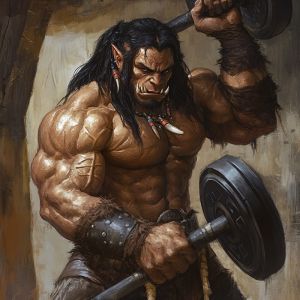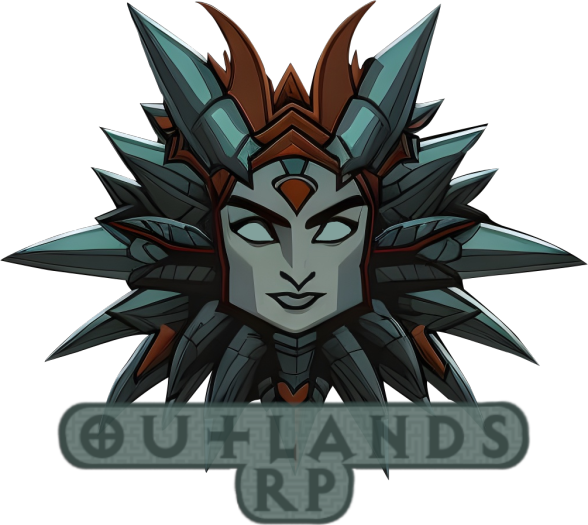More actions
No edit summary |
No edit summary |
||
| (One intermediate revision by the same user not shown) | |||
| Line 1: | Line 1: | ||
=== Overview === | === Overview === | ||
[[File:Outlands-progression-1.jpg|thumb|A gnome studies the secrets of magic | [[File:Outlands-progression-1.jpg|thumb|A gnome wizard studies the secrets of magic.]] | ||
Progression on Outlands is condensed down to three steps of class progression, rather than tracking experience by levels. Experience and advancement is handled by the [[The Mimir|Mimir]]. While condensing progression down to three steps is tricky to make everything fit together, you can vaguely compare each level of progression to levels 3, 7, and 11 respectively. | Progression on Outlands is condensed down to three steps of class progression, rather than tracking experience by levels. Experience and advancement is handled by the [[The Mimir|Mimir]]. While condensing progression down to three steps is tricky to make everything fit together, you can vaguely compare each level of progression to levels 3, 7, and 11 respectively. | ||
| Line 6: | Line 6: | ||
=== Gaining Experience Points === | === Gaining Experience Points === | ||
[[File:Outlands-progression-3.jpg|thumb|A cleric meditates upon their beliefs.]] | [[File:Outlands-progression-3.jpg|thumb|A human cleric meditates upon their beliefs.]] | ||
Here are some methods to gain experience points. | Here are some methods to gain experience points. | ||
| Line 15: | Line 15: | ||
* [[PVP Rules|PVP]]. Once per day, any participant in PVP (win or lose!) will gain experience points. | * [[PVP Rules|PVP]]. Once per day, any participant in PVP (win or lose!) will gain experience points. | ||
* [[Rituals]]. Completing a magic ritual will net experience points. | * [[Rituals]]. Completing a magic ritual will net experience points. | ||
* Jobs. Once per day, jobs will give experience for completing them. | * [[Jobs]]. Once per day, jobs will give experience for completing them. | ||
=== How to Advance === | === How to Advance === | ||
[[File:Outlands-progression-2.jpg|thumb|A half-orc hones his body. ]] | [[File:Outlands-progression-2.jpg|thumb|A half-orc barbarian hones his body. ]] | ||
When you have enough experience points to advance (500 for Adept, 2000 for Master),go to the Mimir and selected 'Check Experience'. If you play a caster class, make sure to talk to the [[The Mimir|Mimir]] after you level up to receive your spells. | When you have enough experience points to advance (500 for Adept, 2000 for Master),go to the Mimir and selected 'Check Experience'. If you play a caster class, make sure to talk to the [[The Mimir|Mimir]] after you level up to receive your spells. | ||
Latest revision as of 20:52, 16 September 2024
Overview

Progression on Outlands is condensed down to three steps of class progression, rather than tracking experience by levels. Experience and advancement is handled by the Mimir. While condensing progression down to three steps is tricky to make everything fit together, you can vaguely compare each level of progression to levels 3, 7, and 11 respectively.
With spell progression, it more closely follows 1, 3, and 5 respectively as spell levels only go up to 3rd. However, you'll have more spells and spell slots than normal to compensate, and combat classes will scale similarly in power. Some abilities, such as iconic class and subclass abilities, are adjusted to fit within the limitations of our system so that they can still be represented without overly skewing things. In some cases where an ability couldn't be reasonably adapted to RPR, they were replaced by something similarly themed.
Gaining Experience Points

Here are some methods to gain experience points.
- Daily Experience Bonus. All players get one token a day for free
- Quests. Different quests give varying amounts of experience points for completing them.
- Professions. Crafting items and using your professions will grant experience.
- Research. Successfully researching new skills, spells, and other items give experience
- PVP. Once per day, any participant in PVP (win or lose!) will gain experience points.
- Rituals. Completing a magic ritual will net experience points.
- Jobs. Once per day, jobs will give experience for completing them.
How to Advance

When you have enough experience points to advance (500 for Adept, 2000 for Master),go to the Mimir and selected 'Check Experience'. If you play a caster class, make sure to talk to the Mimir after you level up to receive your spells.
Novice
Characters begin as novices. A novice caster will have access to level 1 spells, while subclasses will typically have the abilities they'd have around 3rd level. A good way to think of it is that they're about a third of the way into their class progression. Novice characters are unable to make spell gems (see Spells), but don't need them for any of their spells anyway.
Adept
- Attained at 500xp.
- A character who advances their class to adept gains roughly another ⅓ of their class and subclass abilities. This lands them somewhere between an equivalent of level 7 and level 11 in their 5e progression depending on their class.
- Adept casters gain access to level 2 spells. They also gain the ability to create spell gems (see Spells), which they now require in order to cast their level 2 spells.
Master
- Attained at 2000xp.
- A character who advances their class to master gains the remainder of their class and subclass abilities. In some cases this may include a capstone ability that's been adjusted to better fit our system or just straight up left intact if it makes sense.
- Master casters gain access to level 3 spells and unlock some research and rituals that can't be attained otherwise.
Multiclassing
When a character has an opportunity to progress, they have two options. They can advance the class they've already got, or they can advance a second class. If they choose to advance a second class, they're granted all the abilities, bonuses, proficiency, and spells that come along with it.
Advancing a second class means that a caster will not get level 3 spells, though if both classes are casters they'll still be treated as master casters for the purpose of rituals, research, and professions.
